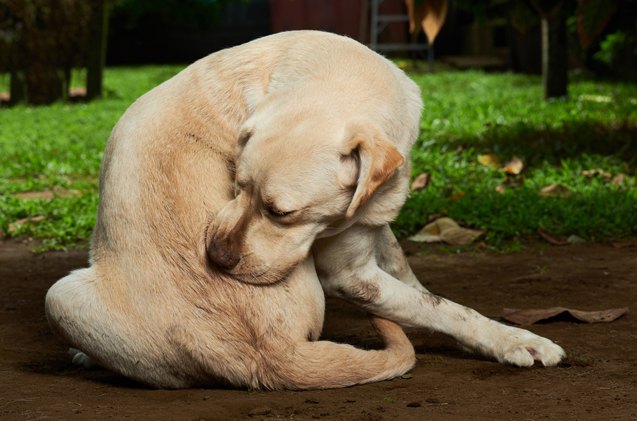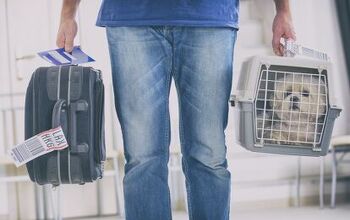Treating Horse Fly Bites on Dogs

You probably think of flies as a harmless nuisance, but the truth is that they can cause harm to your dog. A single fly bite may not do much damage, but multiple bites can lead to skin irritation and other reactions that can sometimes be quite serious. Here’s how horse fly bites (and other fly bites) can harm your dog and what you can do to treat and prevent them.
Are Fly Bites Really That Bad?
There are many different kinds of flies out there, but the kinds that are most likely to bite your dog includes stable flies (horse flies), blackflies, deer flies, and houseflies. When a fly lands on your dog’s body, it usually can’t do much damage because he is protected by a thick coat of fur. But there are certain parts of your dog’s body that are vulnerable to fly bites such as the tips and surface of his ears as well as the skin on and around his nose.
Related: The Buzz About How Mosquitoes Can Sabotage Your Dog’s Health
A bite or two in one of these areas may cause your dog minor pain, but it probably won’t do much damage. The more your dog is bitten, however, the more serious the effects. Each time a fly bites your dog, it opens up the skin, creating small ulcers that ooze blood. The flies feed on the blood which causes further pain and irritation. In serious cases, the wounds may become infected or they could attract more flies that might lay their eggs in the wound which will later hatch into maggots.
Treating and Preventing Horse Fly Bites
If your dog spends a lot of time outdoors, especially in a farm setting, he is at risk for fly bites. If you see flies congregating around your dog’s head or you notice small blood spots on his ears and nose, you can assume that he is being bitten. The more your dog is bitten, the more he will develop blood spots, scabs, and even open, oozing sores. The more pain and irritation these things cause, the more your dog will rub or scratch himself which can do further damage. This is why you should take action as soon as you suspect that your dog is being bitten by flies.
Related: How To Treat Flea Bites On Dogs
To protect your dog against flies you can find fly repellants at your local pet store. Permethrin-based products for flea and tick control may also protect your dog against flies. If your dog has already sustained multiple fly bites, you need to protect the area against further irritation by spreading a thin layer of petroleum jelly over it. You’ll need to reapply these things if your dog goes swimming. If your dog has sustained any open wounds or sores, clean them daily with soap and water then protect them with an antibiotic ointment to prevent infection. As much as possible, keep your dog indoors until the wounds heal completely.
Being bitten by a fly may not seem like much of a problem, but multiple fly bites can cause something called “fly strike” which can lead to serious irritation and pain for your dog. Protect your dog with some kind of fly repellant if he is going to be spending time in an area where flies tend to congregate and seek treatment immediately if you think he has been bitten.

Kate Barrington is the loving owner of two cats (Bagel and Munchkin) and a noisy herd of guinea pigs. Having grown up with golden retrievers, Kate has a great deal of experience with dogs but labels herself a lover of all pets. Having received a Bachelor's degree in English, Kate has combined her love for pets and her passion for writing to create her own freelance writing business, specializing in the pet niche.
More by Kate Barrington







![No One-Trick For This Pony-Riding Dog! [Video]](https://cdn-fastly.petguide.com/media/2022/02/16/8231479/no-one-trick-for-this-pony-riding-dog-video.jpg?size=350x220)















